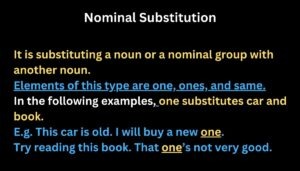Discourse Studies
This category deals with the subject of Discourse Studies in linguistics. This is a core subject when it comes to applied linguistics. In the modern world, there is an emerging trend of the English language becoming the new programming language instead of coding. So, in such a scenario, understanding and interpreting different types of discourses becomes essential.
Discourse is the verbal or written exchange of ideas. Any unit of connected speech or writing that is longer than a sentence, that has a coherent meaning and, a clear purpose is referred to as discourse.
Discourse is an important study for the English language because it allows individuals to express their ideas and thoughts effectively, understand and interpret the perspectives and opinions of others, and build relationships through effective communication.
An example of discourse is when you discuss something with your friends in person or over a chat platform. Discourse can also be when someone expresses their ideas on a particular subject in a formal and orderly way, either verbally or in writing. Speaking on the phone, conversation, interview, putting markers, turn-taking, group discussion, using advertisement, people interaction, jokes, speech, also transferring information. Examples of expressive discourse include letters, diary entries, and stream-of-consciousness writing.
This post includes a detailed explanation of the concept of Conversational Implicature in Discourse along with relevant examples. We’ve all been there; you have watched five episodes of a TV show on Netflix and are just about to fall asleep when the screen has a pop-up message asking ‘Are you still watching…?’. Netflix is implying […]
Conversational Implicature in Discourse Read More »
Vhis post includes a detailed description of the concept of cooperative Principle in Discourse. The cooperative principle is the assumption that participants in a conversation normally attempt to be informative, truthful, relevant, and clear. The concept was introduced by philosopher H. Paul Grice in his 1975 article “Logic and Conversation“. Grice expanded his cooperative principle
Cooperative Principle in Discourse Read More »
This post includes a detailed description of Conversation Analysis, an important feature of spoken discourse. Conversation analysis is an approach to the analysis of spoken discourse that looks at the way in which people manage their everyday conversational interactions. Moreover, It examines how spoken discourse is organized and develops as speakers carry out these interactions.
Conversation Analysis Read More »
This post includes a detailed explanation of Speech Act Theory along with Austin’s speech acts and Searle’s speech acts. In discourse analysis, speech act theory is a subfield of pragmatics that studies how words are used not only to present information but also to carry out actions. The speech act theory was introduced by Oxford
Speech Act Theory Read More »
This post includes a detailed analysis of Context Meaning in Discourse along with a description of the types of context in discourse. Let’s have a look at Context Meaning in Discourse: The context in discourse analysis is the social system or structural framework in which a conversation takes place. For example, people may have a
Context Meaning in Discourse Read More »
This post includes a detailed analysis of Theme and Rheme in Discourse along with different types of themes in discourse. Let’s have a look at Theme and Rheme in Discourse: The theme is the starting point of a clause or a sentence; that is, what the clause is ‘about’. The remainder of the clause or
Theme and Rheme in Discourse Read More »
This post includes a detailed description of cohesive devices along with the components of lexical cohesion in coherence and cohesion. Lexical cohesion involves the choice of vocabulary. It is concerned with the relationship that exists between lexical items in a text such as words and phrases, in particular, content words, and the relationship between them.
Cohesive Devices Read More »
This post includes a description of cohesive devices: conjunctions in discourse including subordinating conjunctions, additive conjunctions, adversative conjunctions, causal conjunctions, and temporal conjunctions. A conjunction is an element of Grammatical Cohesion in Discourse. Let’s have a look at Cohesive Devices: Conjunctions in Discourse: What is a Conjunction? Conjunctions are linking devices between sentences or clauses
Cohesive Devices: Conjunctions in Discourse Read More »
To begin with, this post will define Ellipsis in Discourse which is a component of coherence and cohesion and is considered an important grammatical cohesive device in the subject of discourse analysis. Define Ellipsis in Discourse: Ellipsis Definition: Initially, the ellipsis is the process of omitting an unnecessary item, which has been mentioned earlier in
Define Ellipsis in Discourse Read More »
This post includes an explanation of the concept of Substitution in Coherence and Cohesion, a component of grammatical cohesion in discourse. Substitution is a component of Grammatical Cohesion. To begin with, let’s have a look at the Substitution in Coherence and Cohesion: Definition of Substitution Substitution occurs when an item is replaced by another item
Substitution in Coherence and Cohesion Read More »





